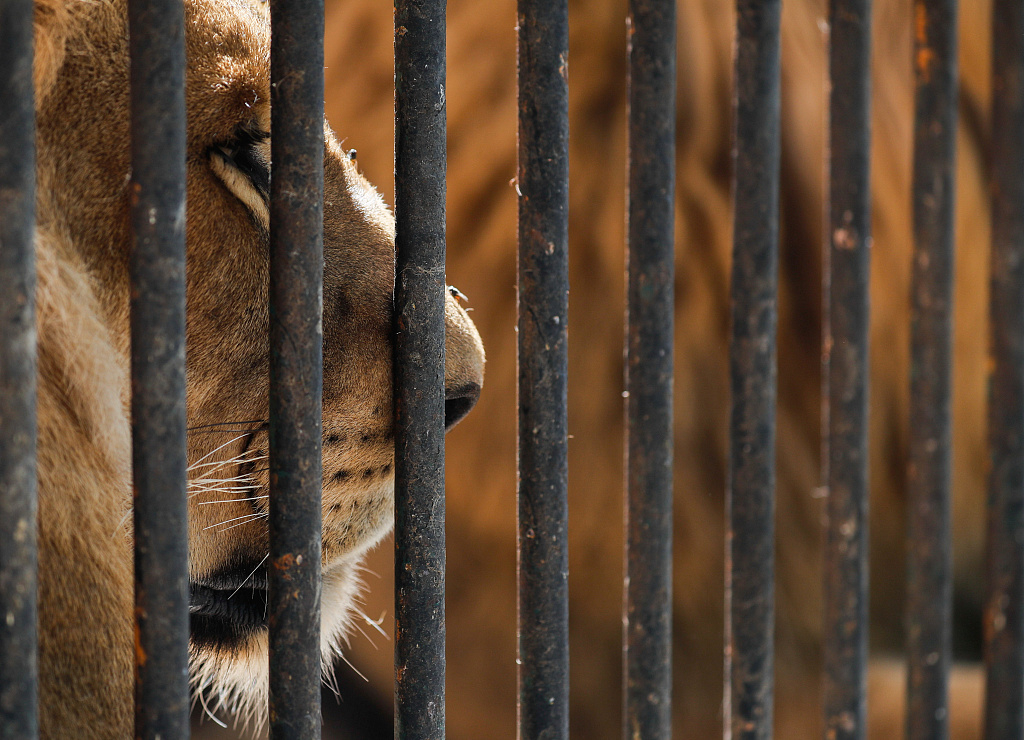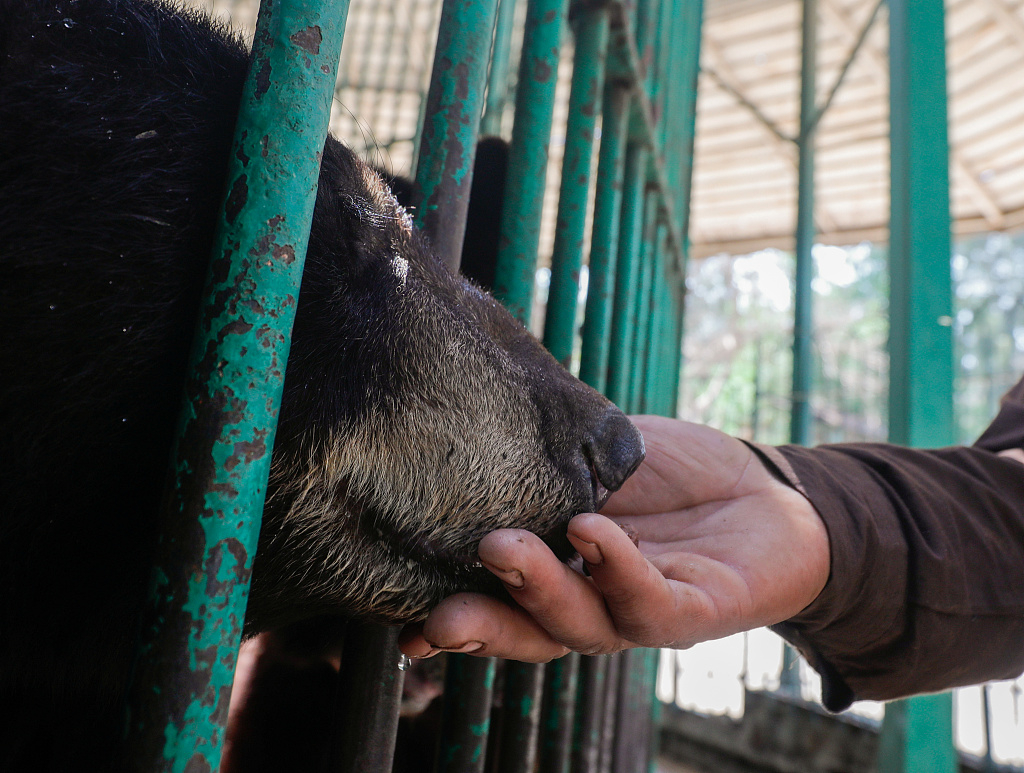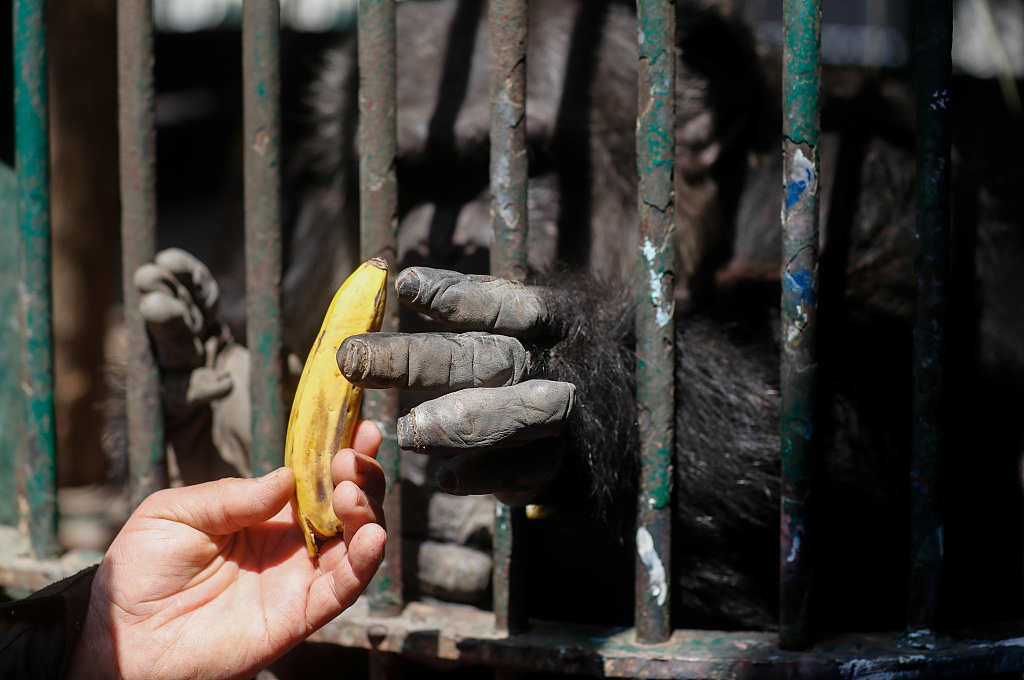Chimpanzees, lions and hippos of Cairo's zoo are getting a rare spell of peace and quiet alone with their keepers as a closure caused by the coronavirus outbreak keeps the public away.

A lion looking out from its cage on the outskirts of Cairo, Egypt, April 2, 2020. /VCG Photo
A lion looking out from its cage on the outskirts of Cairo, Egypt, April 2, 2020. /VCG Photo
The zoo in Giza, across the Nile from central Cairo, is one of the few green spaces in the usually bustling city of 23 million and is often crammed with families seeking diversion from the grind of daily life.
Now keepers do their rounds at the zoo along deserted pathways, feeding animals apples and bananas through the railings of their cages and bringing fresh hay to their enclosures.

Giza Zoo keeper, Mohamed Rizq feeding a bear called "Hany" on the outskirts of Cairo, Egypt, April 2, 2020. /VCG Photo
Giza Zoo keeper, Mohamed Rizq feeding a bear called "Hany" on the outskirts of Cairo, Egypt, April 2, 2020. /VCG Photo
Veteran keeper Mohamed Aly holds hands with 12-year-old chimpanzee Jolia in a gesture of friendship, while noting that keepers are careful about cleaning hands between rounds.
"I've been here about 25 years," he said. "(I've spent) my whole life with them, they may not speak but they feel everything, and of course all of them are looking for people to play with.”

Giza Zoo keeper, Mohamed Aly feeding a chimpanzee called "Koko" on the outskirts of Cairo, Egypt, April 2, 2020. /VCG Photo
Giza Zoo keeper, Mohamed Aly feeding a chimpanzee called "Koko" on the outskirts of Cairo, Egypt, April 2, 2020. /VCG Photo
Egypt, like other countries, is trying to curb the spread of coronavirus cases by restricting people's movements. It has imposed a night curfew and shut schools, mosques and tourist sites including the pyramids. It has so far confirmed more than 980 cases of the virus, including more than 60 deaths.
The zoo, which has been closed along with others in Egypt since March 18, is sprayed with disinfectant twice a week.
(All photos via VCG)
(If you want to contribute and have specific expertise, please contact us at nature@cgtn.com)
Source(s): Reuters